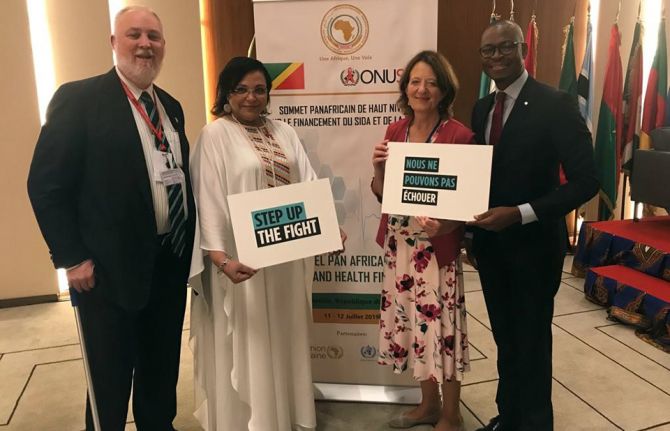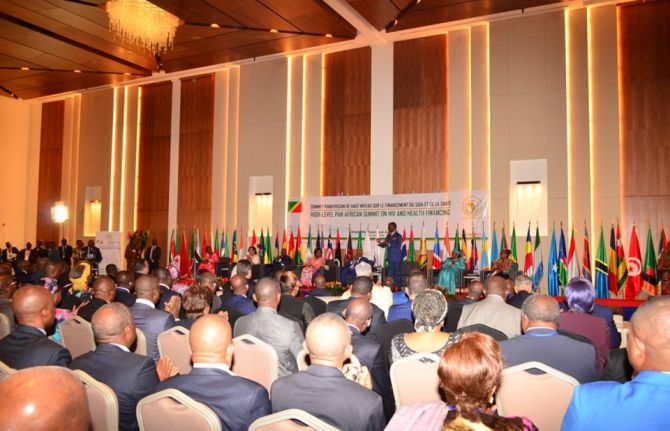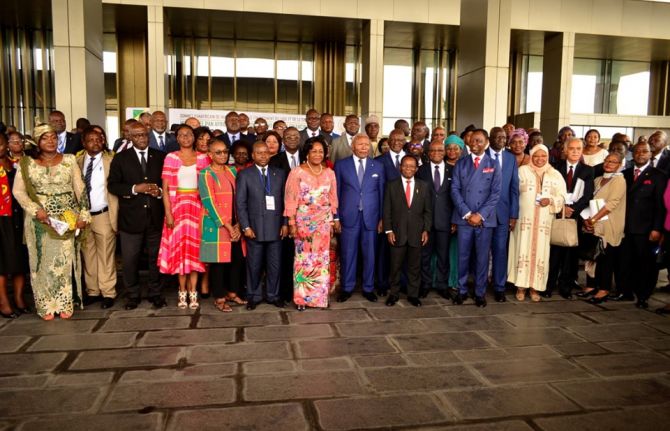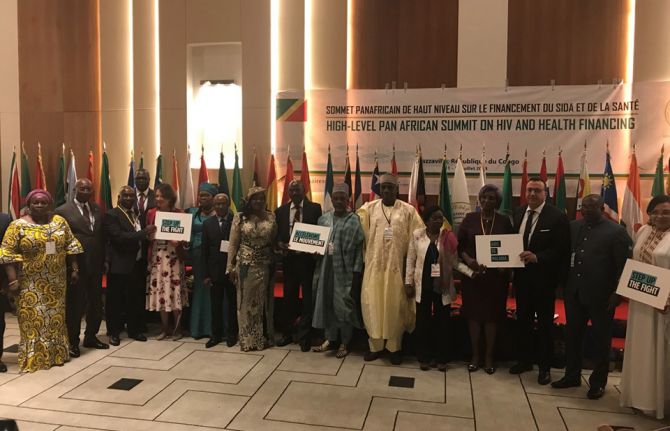




Feature Story
Pan-African Parliament calls for increased domestic resources for HIV and health in Africa
15 July 2019
15 July 2019 15 July 2019A communiqué adopted at the High-Level Pan African Summit on HIV and Health Financing has called for parliamentarians to ensure the right to health for all and for stronger advocacy to increase domestic resources for HIV and health.
“There is an urgent need for our governments to mobilize domestic resources to ensure sustainable and affordable access to HIV treatment, for all, to ensure that all women have the same chances as I did to raise HIV-free and healthy children,” said Valerie Maba, President of the national network of HIV-positive organizations of the Congo.
Roger Nkodo Dang, the President of the Pan-African Parliament, highlighted the urgency of finding durable sources of financing to respond to HIV and to improve public health services in Africa.
Significant increases in both domestic and international funding have enabled African countries to rapidly expand their HIV programmes in recent years. In 2018, 16.3 million people living with HIV were on antiretroviral therapy in sub-Saharan Africa, representing 70% of the total number of people on antiretroviral therapy globally. At the end of 2017, about US$ 21.3 billion was available for HIV programmes in sub-Saharan Africa, with domestic investments accounting for approximately 56% of total resources.
Countries were also encouraged in the communiqué to further contribute to global solidarity in the upcoming replenishment of the Global Fund to Fight AIDS, Tuberculosis and Malaria. “Today, we are honoured to be among you and we salute the efforts of 11 African member states that have already stepped up and pledged,” said Marijke Wijnroks, Chief of Staff of the Global Fund.
In 2001, the heads of state of the African Union committed, through the Abuja Declaration, to allocate at least 15% of national budgets to health care in order to achieve universal health coverage. However, the share of expenditure allocated to health in national budgets in Africa has in fact decreased, and in 2018 there was a gap of US$ 5 billion for the AIDS response, and only two out of 55 African Union member states complied with the Abuja Declaration targets.
In February 2019, African Union member states reiterated their commitment to increase domestic resources for health on the sidelines of the 32nd Ordinary Session of the Assembly of Heads of State and Government through the Declaration of the Investing in Health Africa Leadership Meeting.
“Ending AIDS by 2030 is a Sustainable Development Goal and an aspiration of Agenda 2063. Controlling the epidemic is a prerequisite for sustainable results. If our governments do not Fast-Track and ensure the financial sustainability of the response, the socioeconomic and human burdens will get worse,” said Clémence Bare, Director of the UNAIDS Liaison Office to the African Union.
Held under the auspices of Denis Sassou Nguesso, the President of the Congo, and convened by UNAIDS, the Pan-African Parliament and the Regional Office for Africa of the World Health Organization, the summit was held in Brazzaville, Congo, on 11 and 12 July.



